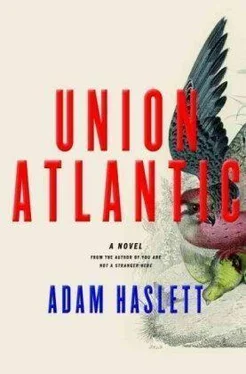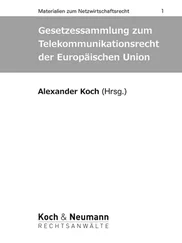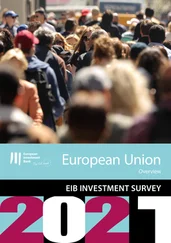Holland had given Doug two jobs, one as head of foreign operations and the other as the man in charge of the newly created Department of Special Plans. The purpose of the latter was to formulate long-term strategy for how Union Atlantic should navigate the new, deregulated environment, in which Congress was slowly repealing all the old, New Deal reforms that had prevented banks from owning the insurers and investment houses Holland wanted to buy. Doug had done a ferociously good job. On his advice, the bank had brazenly commenced acquisitions that were strictly speaking still illegal but that Doug foresaw would be approved by the time the deals were finalized, in part because of Union Atlantic’s own lobbying but also because their competitors, as soon as they caught on, would follow suit adding their own legislative pressure to scrap the old protections. Leading the pack, Holland, Doug, and the management team had been able to cherry-pick the most profitable companies to acquire. In less than six years, while several of the older behemoths had stumbled, Union Atlantic had grown from a stand-alone commercial bank into Union Atlantic Group, a global player and one of the four largest financial companies in the country. Holland had capped it off with the new tower. Soon thereafter he’d appeared on the cover of Fortune and BusinessWeek . The leading industry analyst, a prick named Koppler, pronounced Union Atlantic Group the herald of a new paradigm for multi-platform financial services and its stock rose six percent in a day.
All that was before the fall of 2001. The 9/11 attacks had cut nearly seven hundred points off the Dow. Then, less than two months later, Enron had collapsed. Like many banks, Union Atlantic had provided the Houston energy trader and its off-balance-sheet partnerships with considerable amounts of financing. Meanwhile, Atlantic Securities, the investment banking arm, had sold Enron’s bonds to investors and had purchased many of them with its own money. Still, that wasn’t the worst of it. In December, Argentina had defaulted on its sovereign debt.
For years, Argentina had been a poster child for the International Monetary Fund, obediently implementing the Washington Consensus on structural adjustment, privatizing state-owned industries and public-sector utilities, mostly by selling them to foreign investors, and it had brought inflation under control by pegging the peso to the dollar. In the process, the bonds that the Argentinean government sold to finance its spending had become hugely popular with Western banks. They paid a higher rate of interest than the bonds of first-world countries, and given the IMF’s ongoing support of the Argentinean economy, they seemed a safe bet, even after a deep recession in the late nineties.
Countries as economically mature and as connected to the global system as Argentina didn’t walk away from their sovereign debt; it simply wasn’t done. Or at least never had been until December 2001, when the new government, ushered in after riots in Buenos Aires, defaulted on $81 billion owed to creditors around the world.
Up to this point, the American financial press had been happy to more or less ignore the cash that Union Atlantic itself had burned through in its recent spree of acquisitions. Now, however, given their exposure to the Argentinean crisis, the breathless coverage gave way to jitters, and with those came a sharply falling stock price.
And so once again Holland, seeing his grand plan imperiled and impatient with his doubters, had turned to Doug and the Department of Special Plans and said: Fix it.
To do this the company had to beat the market’s expectations for its earnings for at least two quarters in a row. The quickest way to accomplish that was to pump up the revenues at Atlantic Securities, especially in its futures and derivatives business. Attracting more clients, and thus earning more commissions from handling their trades, wouldn’t be enough; they would have to trade with the firm’s own money — proprietary trading as it was called — in order to enjoy the larger profit margins that came with such direct risk.
But there was a major obstacle to this strategy. In order to place such large, proprietary trades in the futures markets, Atlantic Securities had to post margins with the various exchanges it traded on. Enough cash, in fact, to cover any potential losses. This put a strain on Atlantic Securities’ cash flow. Too much of its capital was being tied up in margin accounts.
The obvious solution was for Union Atlantic, the regular commercial bank with a strong capital base of customer deposits, to lend Atlantic Securities the money it needed. The two entities were, after all, owned by the same holding company. But federal regulations limited this “lending across the house.” And the company’s own internal policies set strict limits on the practice. Divisions within the group were supposed to negotiate with one another at arm’s length. This was all well and fine when you had time on your hands. All very punctilious. One of those procedural safeguards in-house counsel derived such satisfaction from enforcing, never having generated a dime of profit in their lives. But a few more quarters of bad earnings reports, and a strategic plan years in the making could begin to crumble.
And so Doug had done what he’d been hired to do: he’d exercised his impatience. To get around the regulation, he had created a new corporation he dubbed Finden Holdings. Its sole purpose was to borrow cash from Union Atlantic and lend it to Atlantic Securities. This wasn’t illegal, strictly speaking, but the lawyers and auditors knew enough to keep the details in the footnotes. With this invention, the big money had begun to flow into the accounts of Doug’s foreign traders. Soon enough, profits were up.
In the first quarter of 2002, Union Atlantic Group exceeded Wall Street’s earnings forecast by more than any other company in the sector. Once again, they had proven themselves agile and determined. And this satisfied Doug. It satisfied him a great deal. Not because of the likely size of his bonus or the further expansion of his informal dominion. The execution was what gratified him. The focus and precision and directedness of his will. At such times, his churning mind turned lucid and through it power flowed as frictionless as money down a fiber-optic line, the resistance of the physical world reduced to the vanishing point. He felt then like the living wonder of the most advanced machine, as if he’d been freed of all organic hindrance to glide on the plain of pure efficiency. A place of relief, even peace.
Having Sabrina around to fend off the nitpickers and cover for him when he let his lesser, administrative tasks slide had been a great help.
“We have an office in Madrid, right?” she asked now, sidling into Doug’s office to hand him a manila folder.
He nodded.
“I need you to take me there on a business trip. For a week or so.”
Now and again Sabrina employed this sort of presumption, a compensatory fantasy, he imagined, for the inherent powerlessness of a person with an advanced degree in short fiction. It was as though she’d bargained on receiving a certain cultural cachet that had yet to materialize and in the meantime needed a bridge loan of prestige paid out in the quasi-glamour of international travel. Her parents were doctors who’d covered everything through graduate school but had drawn the line at outright patronage.
The paper she had just handed him was McTeague’s latest request for cash to post as margin on the futures exchange in Singapore. The amount was enormous. In addition to money to cover Atlantic Securities’ own trades, he was asking for large sums to cover the trading of his growing list of clients out in Hong Kong, mostly hedge funds who’d been attracted to McTeague’s high profits and wanted in on the action.
Читать дальше












